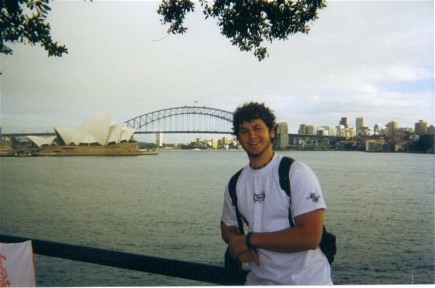People, Language, and Culture

Just in case a few of you are interested.. I'll tell you a little bit about the Wolof language and culture. A large majority of the Wolof people in The Gambia, Senegal, and Mauritania are Muslim. This means they often have multiple wives. The reasons for some of the men having multiple wives include: status, religious reasons, delegation of responsibilities, and the capacity for more children which can yield more labor and productivity in the fields. However, it is becoming a more seldom occurance in the urban areas; along with numerous Wolof traditions and customs. A fusion of ancient African and Islam religions is also very present with marabous that make ju-ju's that have Koran verses written on them. These ju-ju's are believed to offer protection for anything from sickness to bullets. It depends on what the ju-ju is designed to do.
In all of the Gambian tribes, it is extremely rude to not greet someone as you approach them. They usually go through about 10 different greetings per meeting. For many of the volunteers, this can get quite redundant and mundane. Once again, this has been phased out for the most part in the urban areas, but in the villages it can be very important. As far as the language goes.. the 30+ pronoun tenses can get confusing. Mangi, Mangee, Dama, Naa, Laa, Man, Maa, Mane, Dinaa, Damaay, Maay are all different ways of saying I or I am; which should all be used in the correct circumstance. If you hold out a vowel or shorten a vowel too much, you can drastically alter the meaning of the word. You can also add several suffices to one word. One word can be one english sentence. For example: "demoonumawantewati" means "I didn't go with again." Everything after "dem" is a suffix. Anyways.. enough of that.
One more interesting cultural tidbit.. The babies here live without names for usually around a week. After that, if there is enough money, a big naming ceremony is held where many of the villagers come. A sheep or a goat is slaughtered to honor the baby, and a feast follows that with music and dancing. How elaborate the ceremony is depends on the time of year and what the family can afford. They did a make-believe naming ceremony for us in the village. Refer to photo. By the way, my Gambian name is Ahblie or Abdoulie Njie. I quit introducing myself as Evan Roth because here it turns into "Efin Roff." No V's or TH's here. Now many of the volunteers here call me f-in.


0 Comments:
Post a Comment
<< Home